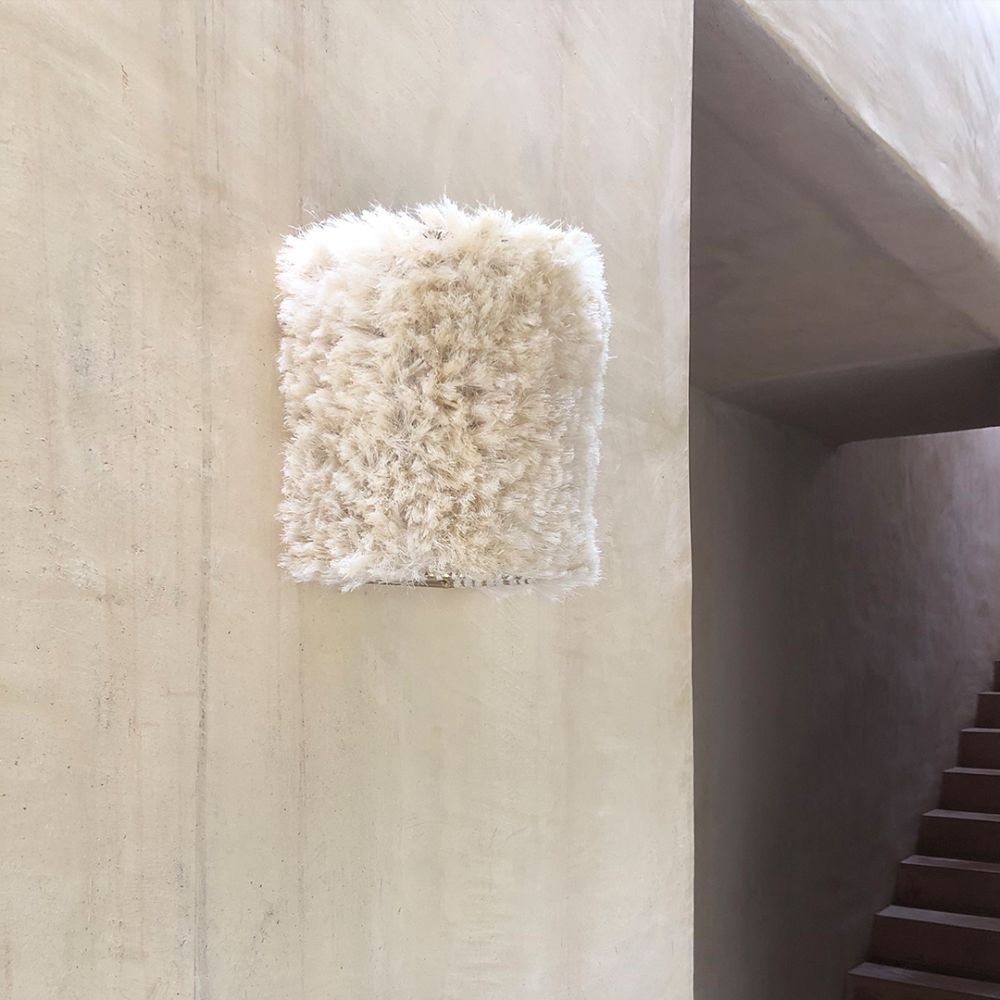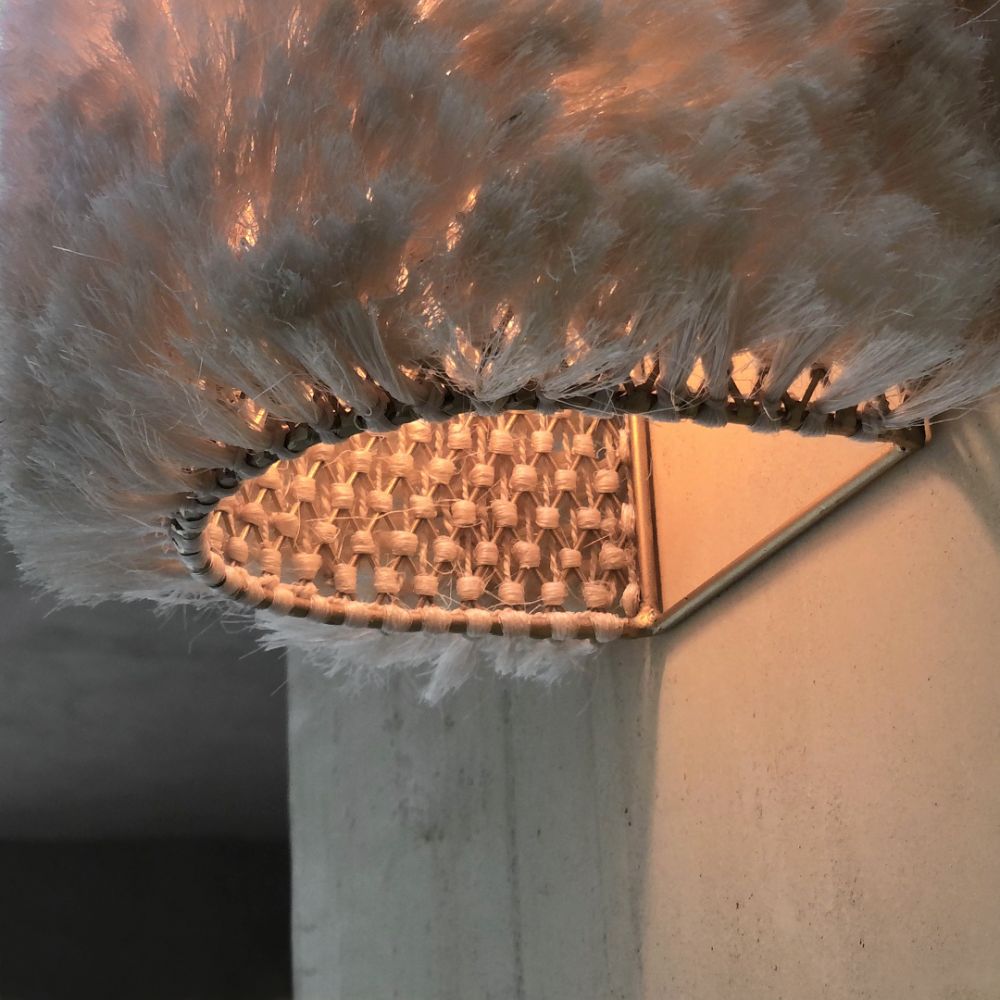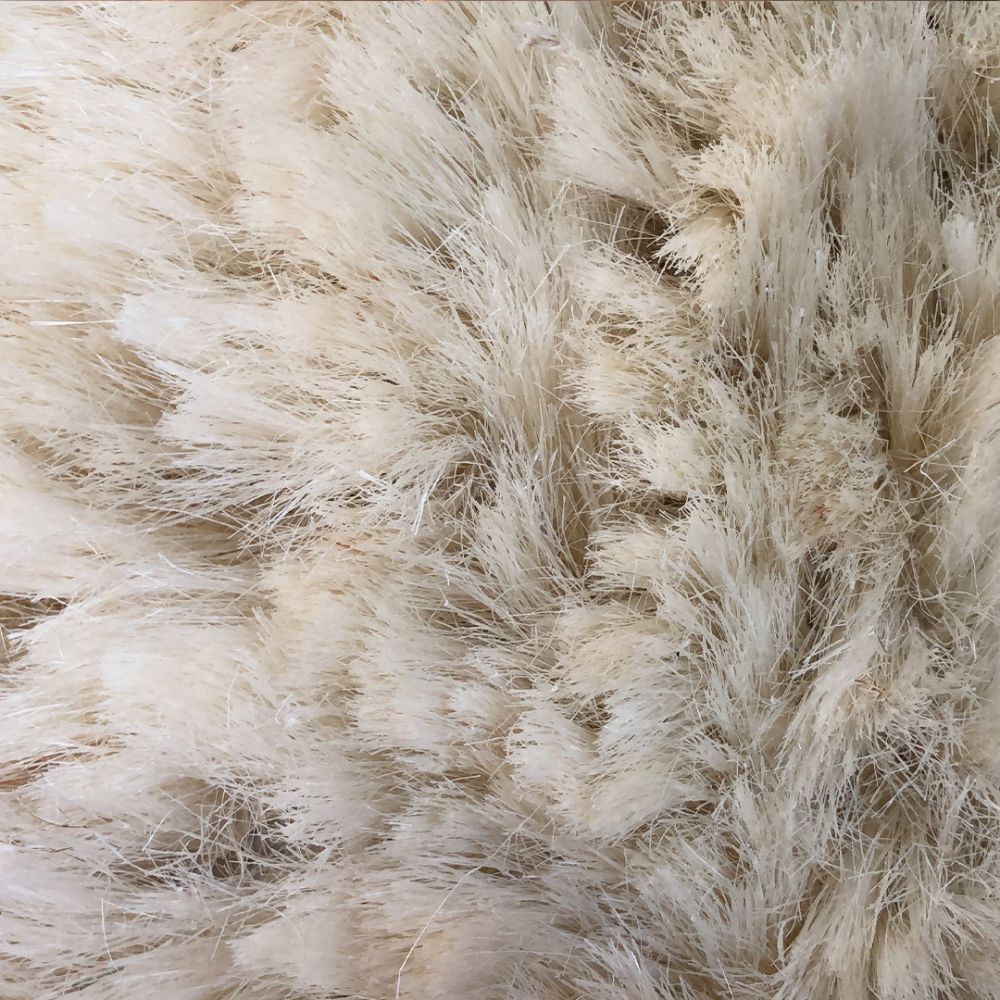Couldn't load pickup availability
San Juan Teitipac, Oaxaca
The Fur Teitipac Screen was made by the artisan group Tejedoras Teitipac, in the town of San Juan Teitipac, Oaxaca. It is made entirely by hand with fibers recovered from the waste of the mezcal industry.
This technique is not new but it is very limited by its preparation process. Once the maguey stalk is recovered, its production process is in a machine brought from Yucatán. Once extracted, they are combed, gathered into small tassels, spun with the same material and tied to give the texture shown. When finished, it is fixed to the metal base.
The materials are of the highest quality, the finishes and textures are a delight to the touch, and the light that comes from the interior is delicate. A handcrafted piece that stands out for its beauty and technique, recommended to integrate into the interior spaces of homes, boutiques, hotels, and which is an example of the combination of tradition and good taste.
Care: The agave fiber, being of natural origin, changes over time until it takes on a slightly more golden tone. It can be maintained by combing and shaking the coat with your fingers. It is not recommended to use outdoors. The use of LED type luminaires is recommended.
Technique: Natural fibers
Measurements : 15 x 15 x 25 cm
Colors : Natural
Materials : Espadín maguey fiber


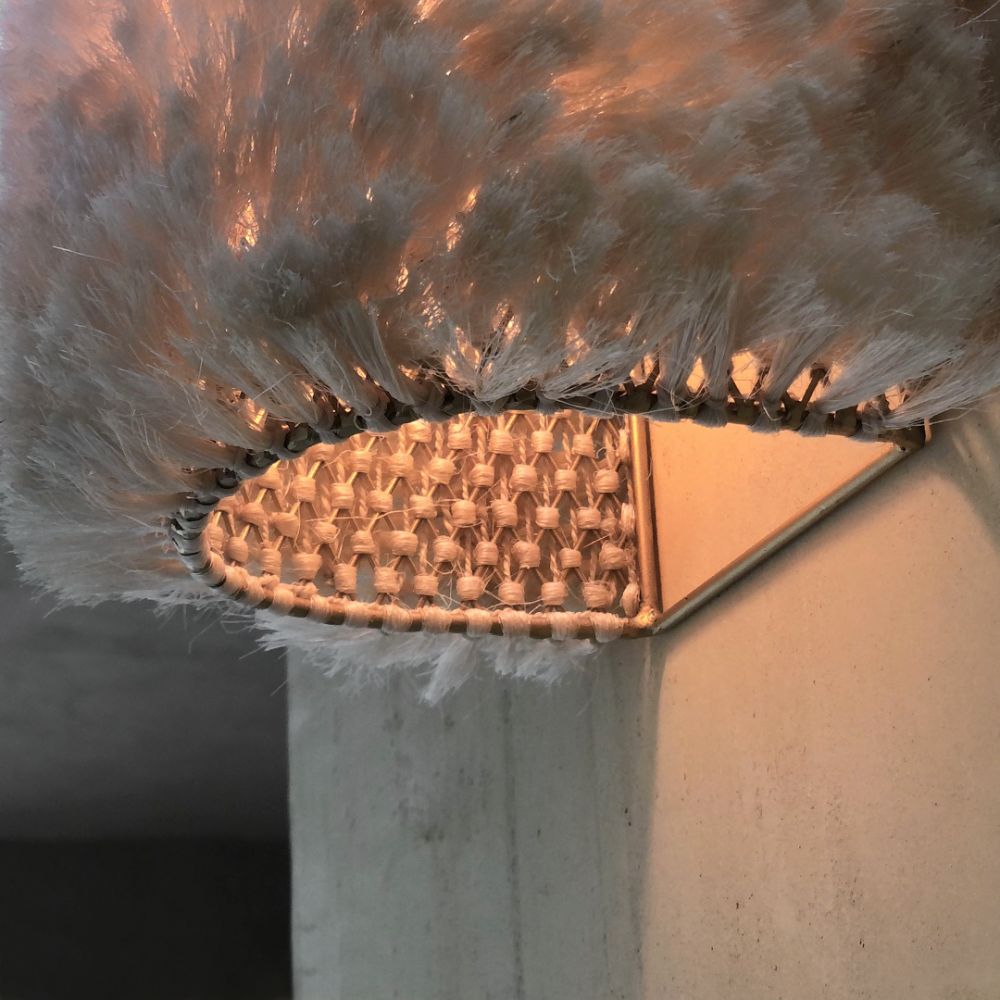
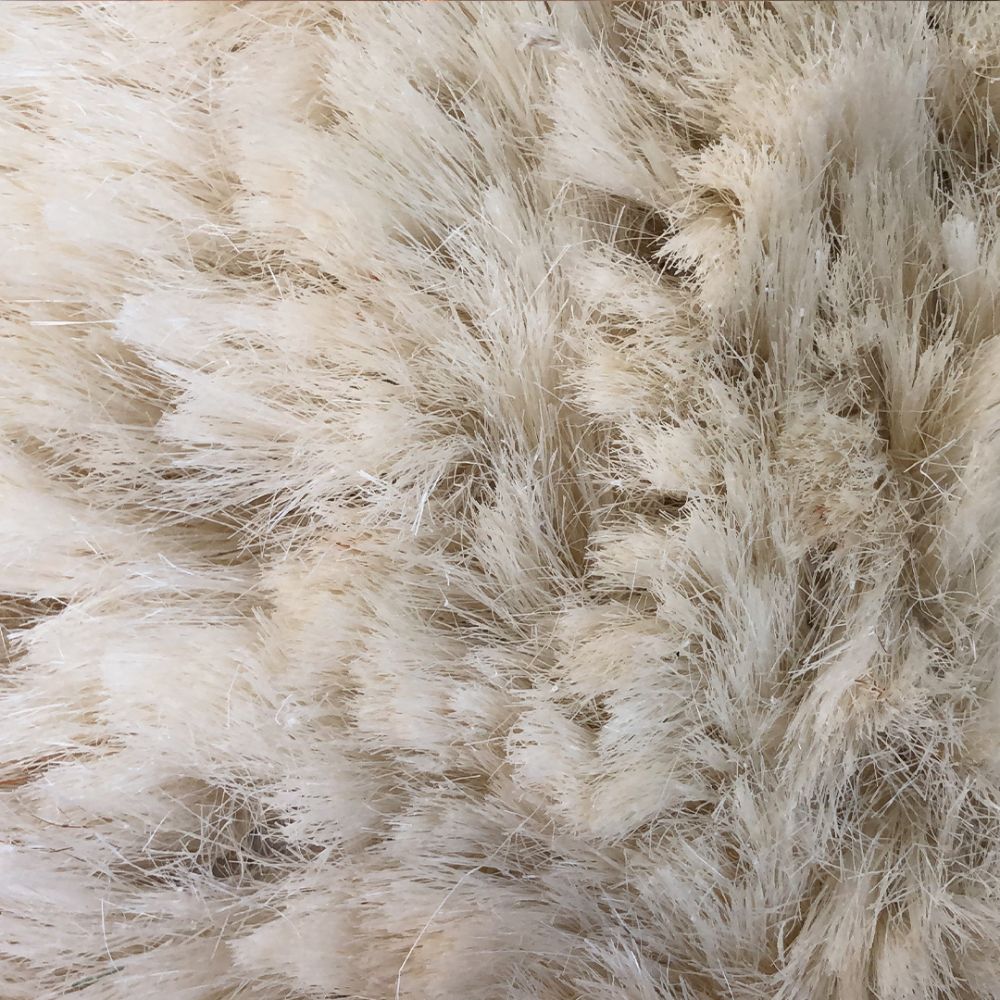
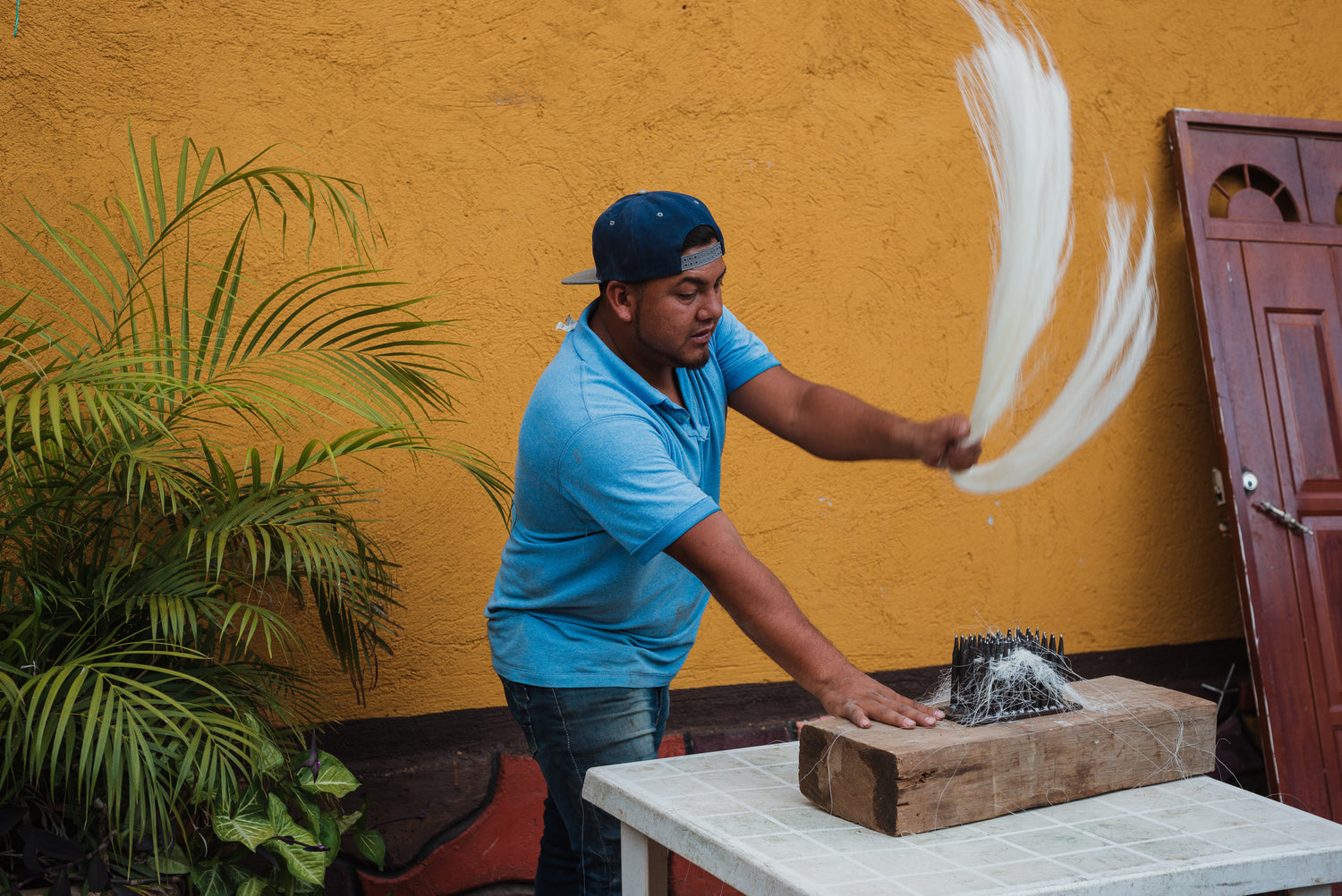
ABOUT THE PARTNER ORGANIZATION
Hermano Maguey
Hermano Maguey is a collaborative project focused on community development, whose pillars are: diversity, equity, equilibrium and balance, inherent to the nature of the maguey-mezcal ecosystem in Oaxaca. It is the result of experience, analysis, field work and interaction with indigenous communities dedicated to planting maguey and mezcal production in the Central Valleys of the State of Oaxaca.
Hermano Maguey is a collective whose mission is to encourage and promote equitable relationships based on practices of financial, social and cultural inclusion with families of indigenous origin in Oaxaca in the search for sustainable systems for the use of maguey based on circular economy, as well as respect to the rights of native peoples, their customs and traditions.


